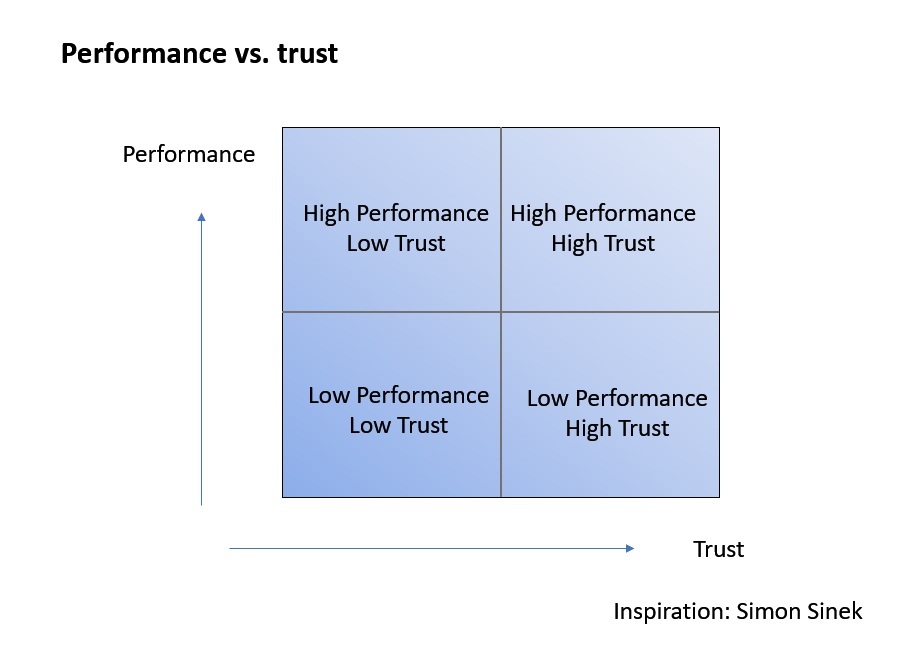This may be a useful blog for those that are in leadership attempting to do an evaluation on an executive officer… whether it is of your own company, in an organization, or as in my case in a government commission having to evaluate the one person who runs your entire city.
Trust – what an interesting word! I believe that much of what we do in life is based on trust… it’s at the core of the most basic relationship.
At the time of this writing, I am an elected official I rely on ‘staff performance’ as well as: I rely on the truth of what the city administrator – tasked with running our entire city is saying or doing, I rely on other people’s character and ability. These things provide me with assurances when answering questions for our citizens in regards to what the city said it would do. Trusting on the word of the executive leadership is important for an elected official – in as much as that information helps provide guidance to our citizens.
I believe that we humans… of different cultures and backgrounds may have different meanings to what trustworthiness means – overall we may all agree that trust is the glue of life. I believe that trust is a founding principle that holds all relationships together.
Altered Emails, Insubordination, Polling Commissioners, Fudging paperwork…these are errors that are public record – documents, emails and audio files. What is the gravity of these issues when they are perpetrated by the city manager or administrator?
What is the responsibility of the elected officials… even if one on the commission brings it to the elected body? What is their duty? What message does the majority on the commission send when they look the other way?
At the time of the writing of this post, I’m in a very uncomfortable situation of being one of 5 elected officials … me being the Mayor and head chair of our city commission in the city of Lake Helen, Florida; we are obligated by the city charter to evaluate our executive leader. In my first term, I brought up an issue in which I questioned the integrity of the first city administrator in regards to an outstanding account that had not gone billed and money was owed to the city.
The other incidents happened at the end of my first term and beginning of my second term with the second city administrator with regards to an incident in what appeared to be an altered email. The issue became exacerbated because the city charter does not allow for any one person to ‘manage’ the city administrator and even bringing up the issue in private would be construed as doing just that. It appeared that the commission misconstrued my inquiry of asking the city administrator to clarify something as “managing”… when in fact, I was trying to clarify the incident and avoid an embarrassing situation on the part of the city administrator and also the city. Later on, through the process of democracy, the issue was addressed through a public meeting; 4 on the commission of 5 appeared to not have an issue with the incident (a matter which had to do with documents)- the commission concluded that it simply was a communication problem – despite the evidence before them. An email coming from a government employee is still a document… and that it “appeared” altered was of major concern to me. What else was being altered? So, I still differ.
Unfortunately for me, that set a foundation of “mistrust” and opened the door of questioning further actions of the city administrator. Adding to that was a suggestion by the commission to seek mediation – and I had reached out numerous times during a period of 4 months with no avail despite the administrators claim: “we are supposed to be a team”. As an elected official the experience was very frustrating – especially as I entered into a re-election campaign. I began to suspect that the city administrator was hesitant because we were weeks away from election day and there could have been a 50-50 chance I would not be elected, (turned out it was nearly 70% votes in my favor). I like closure and the administrator prolonging a response to scheduling an appointment put me in an awkward place since I was not able to provide closure for our citizens. The drama was thick as molasses, as a handful of citizens clamored to her support, even introducing to the commission an email which I had not been previously privileged to see between the city administrator and a citizen offering the services of their marriage counselor.
Regardless if one is dealing with public or private industry… the question is still important: Performance versus Trust?
Author of The Infinite Game- Simon Sinek has consulted with Navy SEALs and studied performance and human behavior. The Seals ask that same question when putting together their team of elite individuals. Navy Seals work together to achieve results under sometimes very threatening circumstances I would tend to believe that a high level of trust is paramount in that field.

What was reported is, the SEALs would rather choose a medium-level performer that can be trusted than a high performer prone to narcissism or bad-mouthing other team members. “Trust is a measure of what kind of person you are,” says Sinek.
As for myself, having been on both sides of the public and private sectors (both as an employee and in leadership), I can say organizations are at the danger of creating toxic environments when they focus too much on performance.
In Sinek’s Navy Seal explanation -as depicted on the image. Navy seals have learned that someone who sits on the axis of maximum performance but minimal confidence is not ok. That’s what they call disease and poison within the team. The question would be: “I could trust you with my life, but can I trust you with my money and my wife?”
Nobody wants someone with minimal performance you can’t trust. Preferably, everyone wants someone who performs to the maximum and can be trusted beyond bounds. If they have to choose, they prefer someone who scores very high on trust, but less on performance. I tend to agree.
I also agree that times change, and so does the need for the kind of person that people hire. There is a difference when the demand of labor calls for skill in mechanical or production versus knowledge-based skills (which seems to be the new pillar for market value as an employee). Some people are good at absorbing information, this does not mean that they are good at processing, analyzing, or sharing information. It’s dangerous when only one person holds the knowledge of your institution.
I now have the opportunity to speak on this topic… I ponder how can governments foster trust? There is a HUGE difference in being an elected official and an appointed or hired employee. “The PEOPLE” elect a ‘representative’ based on many variables ranging from trust to capability and they know that if they do not perform… well a vote NO ensures they not return. How does that apply to when hiring staff?
Too often government agencies promote the adoption and retention of toxic team members by making performance a priority without looking at how someone operates as a human being. That seems to be a norm. Beyond an “evaluation report” it seems that government officials who are tasked with appointing attorneys or managers/administrators for their city have little to no matrices in helping to reveal the level of trust and what someone contributes to the team. Until it’s too late.
Elected officials are there to uphold the Oath of Office and protect the laws- dismissing errors of an executive leader sends the wrong message to the department heads and employees, more so, it eventually demoralizes your community. Mind you, not all errors call for removing a person from the team, yet there are certain behaviors that require documenting… if not, it sends the message: Government is above the law.
As I write this I am outnumbered on the dais. The commissioners that I serve with do not espouse my values. What do I think the government/local municipality facing this similar issue can do about this? I think there are several things we can consider, I just don’t know how to tackle the issue:
Definitely one would need to find out what both employees and customers/citizens really value in the way of trust. What does this mean to them? What happens when we attend to their concerns – or when we don’t? This may mean having the courage to face the strengths of what the commission/committee as representatives of the people does as well as the courage to face a different point of view than the one that is held about trustworthiness.
My experience as an elected official has had its beautiful peaks, and the pendulum swings in the opposite direction reminding me that we as a human race have a lot further to go. Perhaps people want deceit so they can have someone to blame for their shortcomings… or the thirst for gossip and drama?
THESE ARE TOUGH QUESTIONS FOR A GOVERNMENT OR CITY TO ADDRESS.
Finding out how people view your city’s trustworthiness.
Does your staff speak and act in a truthful manner all the time?
What happens when your city lets people down?
We may need to find deep courage to do something about this!
How does a city, and it’s commission courageously address the impact and fallout on reputation, credibility, respect, and valued connections?
Our citizens certainly can sense when power is used incorrectly or for self-serving purposes (even if this is unconsciously done).

